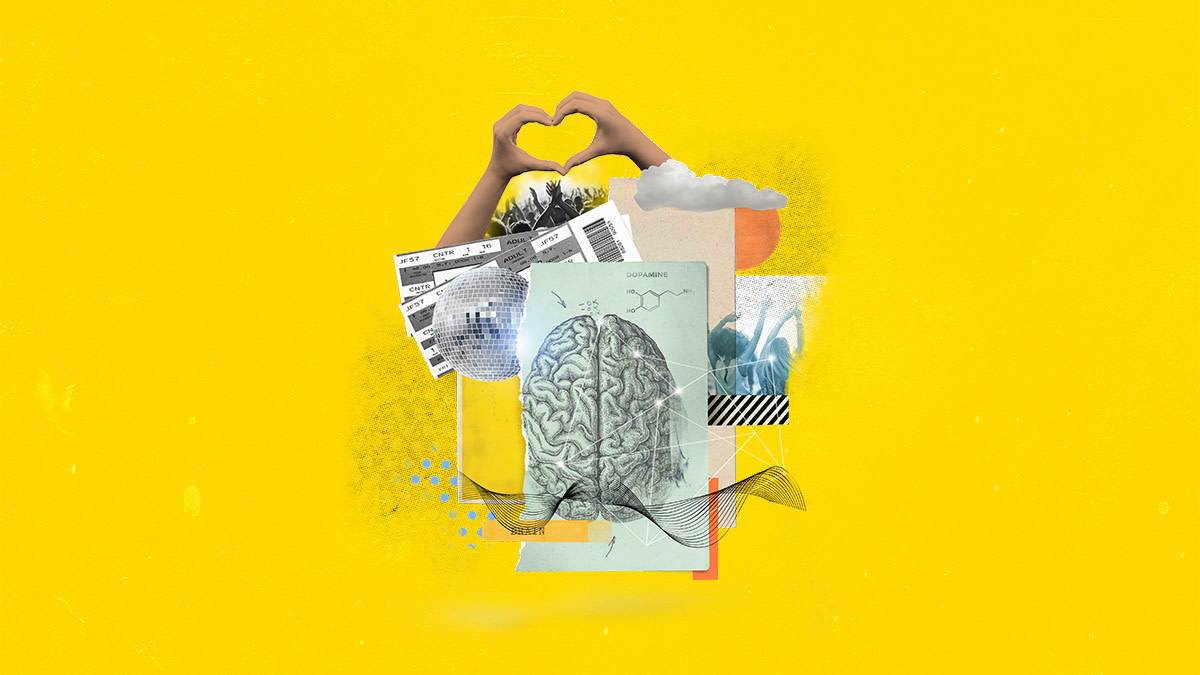Why Does Music Make You Feel So Good? It’s All in Your Head
Written by MasterClass
Last updated: Mar 16, 2023 • 2 min read
There’s a reason for that euphoria you feel when the right song comes on the radio, plays during a party, or booms inside a nightclub. Alan Turry, the director of New York University’s Nordoff-Robbins Center for Music, is here to explain the neurological effects and wide-ranging benefits of listening to a good track—its power to decrease anxiety, induce meditative states, form neural connections, and help you bond with others.
Learn From the Best
“Music lights up more parts of the brain than anything else,” Turry says. “Listening to music energizes, animates, activates us.”
This is partly the result of dopamine, a neurochemical the brain releases as a “reward.” It’s linked to behavior that promotes survival; when you eat or mate, you get a hit. Curiously, your brain will also dole out dopamine in response to more abstract, less primitive activities, like falling in love. Or listening to music.
Beats and melodies have other ways to alter your mental activity. For the duration of a song, you can enter into what some psychologists call “transient hypofrontality.” Areas of your brain that generate fears and anxieties become less active. Your inhibitions dissipate, leaving room for only the here and now—a state similar to those attained through meditation. And you’re not only engaged with what you’re hearing; you’re also captivated by the idea of what’s about to come.
“Our brains are great predicting machines, and when we’re listening to music, we’re not just listening to the notes,” says Turry. “We’re anticipating the next note.”
He adds that music can “bypass our defenses,” offering “a way to connect to things you’ve forgotten about.” Therein lies the efficacy of music therapy, stemming from a combination of mental hardwiring and socialization. Humans begin forging these connections in utero; they’re fostered throughout life by way of classroom sing-alongs, hymns at religious services, or chants at sporting events.
“Listening to music energizes, animates, activates us.” —Alan Turry
Turry adds that large music events, like EDM festivals, can evoke an almost “oceanic communal feeling.” Neuroscientific data suggest that, when hearing live music in the presence of other humans, we experience a brain synchrony apparent in the delta range, which happens to be the area related to both enjoyment and a sense of oneness. This could help explain why a night at the club or a rollicking wedding reception provides a layer of bliss beyond spinning vinyl at home.
Song sequencing can play a crucial role, too. “What’s important with DJs is timing the intensity,” Turry says. “You’re pacing just as you would in a music-therapy session: having a sense of the beginning of the session, building to a very intense moment, bringing the session down so that there’s a sense of ‘We’ve completed something together...’ ”
With a great playlist, the DJ isn’t simply hyping the crowd. They could actually be guiding your brain chemistry, using mental priming and reward functions, and forming a neurological bond between a group of listeners. So if you’re playing a set and start feeling the vibe, dedicate the next one to your brain—and keep spinning.
